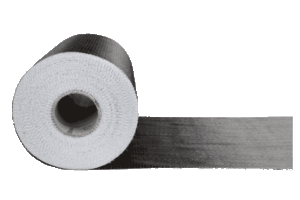 Carbon fiber reinforcement systems offer a plethora of benefits in numerous applications due to their exceptional properties and versatility. The use of carbon fiber composites significantly contributes to lightweighting and strengthens structures, making them pivotal in a multitude of industries. This article explores the extensive advantages provided by carbon fiber reinforcement systems, emphasizing their high strength-to-weight ratio, enhanced structural performance, extended durability, tailored mechanical properties, design flexibility, fatigue and impact resistance, thermal and conductive properties, environmental advantages, and cost-efficiency.
Carbon fiber reinforcement systems offer a plethora of benefits in numerous applications due to their exceptional properties and versatility. The use of carbon fiber composites significantly contributes to lightweighting and strengthens structures, making them pivotal in a multitude of industries. This article explores the extensive advantages provided by carbon fiber reinforcement systems, emphasizing their high strength-to-weight ratio, enhanced structural performance, extended durability, tailored mechanical properties, design flexibility, fatigue and impact resistance, thermal and conductive properties, environmental advantages, and cost-efficiency.
Lightweighting and High Strength-to-Weight Ratio
Carbon fiber composites are renowned for their remarkable strength-to-weight ratio, making them substantially lighter yet incredibly strong compared to traditional materials like steel and aluminum. This characteristic is particularly crucial in industries where weight reduction is paramount, such as automotive and aerospace. Utilizing carbon fiber composites from a reputable carbon fiber supplier enhances the overall efficiency and performance of the product by reducing weight while maintaining or even enhancing strength.
Enhanced Structural Performance
The use of carbon fiber reinforcement significantly strengthens structures, enhancing their structural integrity and overall performance. Carbon fiber composites exhibit high tensile strength, stiffness, and fatigue resistance. These properties are instrumental in ensuring the durability and longevity of structures, ultimately reducing maintenance and replacement costs. Integrating carbon fiber reinforcement in key load-bearing components amplifies the structure’s robustness, allowing it to withstand various stresses and strains effectively.
Extended Durability and Longevity
Carbon fiber composites are highly durable and possess a prolonged service life, making them suitable for applications where longevity is a critical factor. These composites are resistant to corrosion, chemicals, and environmental degradation, ensuring structural integrity even in harsh conditions. In sectors like marine and offshore industries, the use of carbon fiber reinforcement from a reliable carbon fiber supplier extends the lifespan of critical components, reducing the need for frequent replacements and maintenance.
Tailored Mechanical Properties
One of the outstanding advantages of carbon fiber composites is the ability to tailor their mechanical properties to suit specific application requirements. By adjusting parameters such as fiber orientation, resin types, and curing processes, the mechanical characteristics of the composite can be customized. This tailored approach ensures that the composite possesses optimal mechanical properties for the intended application, enhancing efficiency and functionality. Acquiring carbon fiber from a reputable supplier ensures consistency and reliability in achieving the desired mechanical properties.
Design Flexibility and Complex Geometries
Carbon fiber composites offer unparalleled design flexibility, allowing for the creation of intricate and complex designs. Their malleability enables the material to take various shapes and forms during the manufacturing process, making them ideal for industries where design intricacy is essential. In sectors like automotive and aerospace, carbon fiber reinforcement allows for streamlined and aerodynamic structures, resulting in improved performance and fuel efficiency.
Exceptional Fatigue and Impact Resistance
Carbon fiber composites excel in fatigue and impact resistance, making them ideal for applications subject to dynamic and high-stress conditions. The superior fatigue resistance ensures that the composite maintains its structural integrity and performance even after enduring repeated stresses. In applications such as sports equipment, automotive crash structures, and aerospace components, the exceptional impact resistance of carbon fiber composites significantly enhances safety and longevity.
Thermal and Conductive Properties
Carbon fiber composites exhibit excellent thermal conductivity and resistance to thermal expansion, making them well-suited for high-temperature applications. These properties are crucial in industries such as aerospace and industrial manufacturing, where thermal management is paramount. The efficient thermal conductivity of carbon fiber composites ensures effective dissipation of heat, contributing to the overall efficiency and safety of the application.
Environmental Advantages
In today’s environmentally conscious world, the environmental advantages of carbon fiber composites cannot be overstated. Their lightweight nature contributes to reduced carbon emissions and energy savings over the product lifecycle, aligning with sustainability goals. Moreover, carbon fiber is recyclable and reusable, making it an environmentally responsible choice. Procuring carbon fiber from a sustainable and eco-friendly supplier further emphasizes the commitment to reducing the environmental footprint.
Cost-Efficiency and Total Cost of Ownership
Despite an initial higher investment, the use of carbon fiber composites yields significant cost savings over the product’s lifecycle. Reduced fuel consumption, maintenance costs, and overall enhanced performance outweigh the initial investment. A reliable carbon fiber supplier ensures cost-efficiency through consistent product quality and technical support, further substantiating the value proposition of utilizing carbon fiber reinforcement in various applications.
In conclusion, carbon fiber reinforcement systems provide a wide array of benefits, revolutionizing numerous industries. From strengthening structures to improving design flexibility and contributing to environmental sustainability, the advantages of carbon fiber composites are undeniable. As technologies continue to advance and carbon fiber suppliers evolve, we can expect even more innovative applications and further optimization of these exceptional materials, solidifying their position as a fundamental component in modern engineering and manufacturing.
